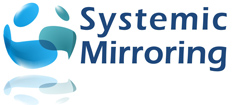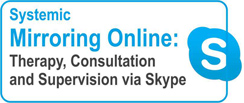Treating Children
Behavior problems
 During the last ten years we have developed a unique therapeutic approach to working with children displaying a set of difficulties such as behavior problems, regulating emotions, impulsivity, aggression, ADHD, temper tantrums, resistance to adult authority and lack of motivation.
During the last ten years we have developed a unique therapeutic approach to working with children displaying a set of difficulties such as behavior problems, regulating emotions, impulsivity, aggression, ADHD, temper tantrums, resistance to adult authority and lack of motivation.
Over the years we have learned that beyond the defiant and aggressive behaviors the main difficulties these children experience are the formation, expression and conservation of the experience of having value, significance and worth. Without these abilities, children frequently experience feelings of inferiority, humiliation, lack of respect and lack of confidence in themselves and in the significant adults in their lives – parents and teachers. Fearing failure, these children tend to avoid dealing with the necessary educational, social and interpersonal challenges of their lives.
In order to maintain a sense of worth and regulate the shame which is a constant part of their lives these kids tend to act in three common ways:
• Attacking others : blaming, verbal insults or physical assaults.
• Attacking the self : increased self-criticism , phrases such as "I'm stupid" , "I'm no good", a desire to die and threatening self- harm .
• Avoidance and isolation: unwillingness to talk about the problems , resistance to receiving help from others, behaviors leading to social isolation, stigma and ostracism.
In addition to the systemic focus of working with the child's parents and the school staff, Dr. Uri Weinblatt and Kfir Hadar began developing the Systemic Mirroring approach that focuses specifically on the child's ability to regulate the emotion of shame.
In our work with children and adolescents we can observe the effects of shame often only after they were masked by other emotions or behaviors for example:
Difficulty in Playing, difficulty in losing: A child plays a game with a friend and loses. He explodes, throwing the game board aggressively to the ground.
Arguments, power struggles, fighting: A child is asked by his parents to do something (clean his room, go to bed, do his homework) as a reaction he starts shouting, cursing and yells “I’ll do what I want”.
Violence: In school, a child sees another child looking at him and laughing, he walks over and punches and starts beating him.
Classroom noncompliance: A teacher tells her student to open up his book. She refuses and says “who are you to tell me what to do?”
While we usually do not understand these diverse life events to be representing a common experience they can all be viewed as expressions of shame. Indeed, the word shame does not capture the many human experiences that are fueled by the emotion of shame. Instead we use other words such aggression, hurt, pain, acting out, disrespect, humiliation, uncaring, shyness, power struggles and low self-esteem. Yet all these words are either triggers or behavioral consequences of the experience of shame. They are all connected with the experience of being exposed as inferior, not worthy or uncared for.
The main goals of treatment are to rebuild the child's trust in himself and significant adults in his life and to develop the motivation to face social and academic challenges. We provide the child with diverse experiences in different environments (counseling room, group therapy, classroom, school yard and home) to enable the strengthening of abilities related to improved emotional regulation: trust, courage, truth, balance and responsibility.
Trust – learn to work together, to trust others and myself
The basis for behavioral change starts by creating a renewed confidence of the child in himself and with significant adults in his life. Since the building of trust is experienced as risk-taking on the part of the child, we found new creative ways to foster a safe and secure environment for the child.
Truth – learn to voice the real problem and not deny it
Many children with behavioral problems hide their true feelings – from themselves and from others. To protect themselves they find shelters behind masks – the most common mask being the "I don't care/leave me alone" mask. In our work we help the child get in touch with their real emotional experience and stop the manipulations designed to hide his or her emotions.
Balance – learn how to identify what triggers loss of control and find new solutions to problems
During treatment we help the child become an expert in regulating emotions. The child learns to recognize different emotions and know how they affect his or her behavior and level of motivation. We teach children skills of effective management of feelings through diverse means .
Responsibility – to learn to look at myself instead of blaming others
The situation in which the child blames others and does not take responsibility for his or her behavior is familiar to many parents. Not taking responsibility stems from the fear to fail and the fear to be perceived as weak. When the child learns to regulate his shame and blaming others and realize that the way to feel good is through taking responsibility for his behavior.
Courage – to learn to deal with difficulties and failures and be willing to make an effort
Despite the defiant behavior, children with unregulated shame are extremely afraid of the experience of failure. They often refuse to start activities they fear may expose their weaknesses and incompetence. Other times they give-up easily. Change requires effort and courage. We help children to experience a variety of situations that allow them to deal with failure constructively.




Comments are closed.